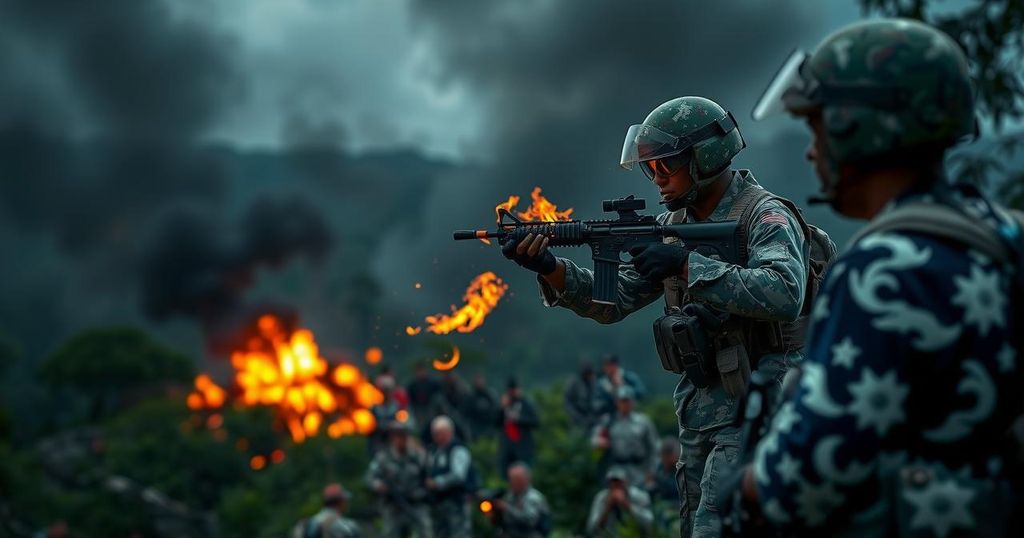Angola Accuses M23 Rebels of Ceasefire Violations in Eastern DRC
Angola has accused M23 rebels of violating a ceasefire in eastern DRC, following clashes in Kalembe. The ceasefire, brokered by Angola in August, was meant to halt hostilities between M23 and government-aligned militias. Angola condemned the M23’s actions as a serious breach that poses a threat to ongoing peace efforts. The violence has exacerbated the humanitarian crisis in a region already burdened by conflict over valuable resources.
Angola has formally accused the M23 rebels, who are reportedly backed by Rwanda, of breaching a ceasefire agreement in the eastern region of the Democratic Republic of the Congo (DRC). A ceasefire between the DRC armed forces and the predominantly Tutsi M23 militia had been established since early August, following diplomatic efforts facilitated by Angola.However, recent clashes occurred in North Kivu province between M23 forces and the government-aligned Wazalendo militia, significantly undermining the fragile peace. According to local reports, fighting erupted early on Sunday in Kalembe, a town heavily contested by both factions. The Angolan government described M23’s capture of Kalembe on the same day as a “flagrant violation” of the ceasefire, expressing strong condemnation of this act, which it asserts endangers the ongoing peace negotiations.A spokesperson for the Wazalendo reports that their forces have since regained control of the town, firmly rejecting the involvement of official Congolese military troops in the combat. Angola’s statement is notable, as government officials seldom comment on the frequent clashes between M23 and Kinshasa-aligned militias. The M23 has been active since late 2021, seizing extensive territories in eastern DRC, resulting in widespread displacement and a consequential humanitarian crisis. Kalembe, home to approximately 40,000 residents, lies along a critical route that facilitates access to valuable mineral deposits, including gold and diamond resources, which are central to the region’s economy but have fueled decades of violence among competing rebel factions.
The Democratic Republic of the Congo has long been afflicted by a myriad of conflicts, particularly in its eastern provinces, where various militia groups vie for control over mineral-rich territories. The M23, which predominantly comprises ethnic Tutsi, emerged in 2021, exploiting ongoing instability and dissatisfaction with the DRC government’s inability to provide security and resolve local grievances. The conflict has resulted in significant humanitarian challenges, with millions of people displaced. Angola’s proactive role in mediating the ceasefire reflects the geopolitical interests of regional powers in stabilizing the DRC, as instability in the country poses broader risks to central Africa. The ceasefire established in August was initially a hopeful step towards peace, although enforcement has proven challenging amid ongoing violence.
In conclusion, Angola’s denunciation of the M23 rebels highlights ongoing tensions and the fragility of the ceasefire in eastern DRC. The recent escalation of violence in Kalembe underscores the challenges faced by local and international actors in achieving lasting peace in a region beset by conflict and humanitarian crises. This continuing unrest not only threatens the local population but also risks destabilizing the broader region, necessitating urgent diplomatic efforts to address the underlying issues fueling this cycle of violence.
Original Source: www.barrons.com




Post Comment